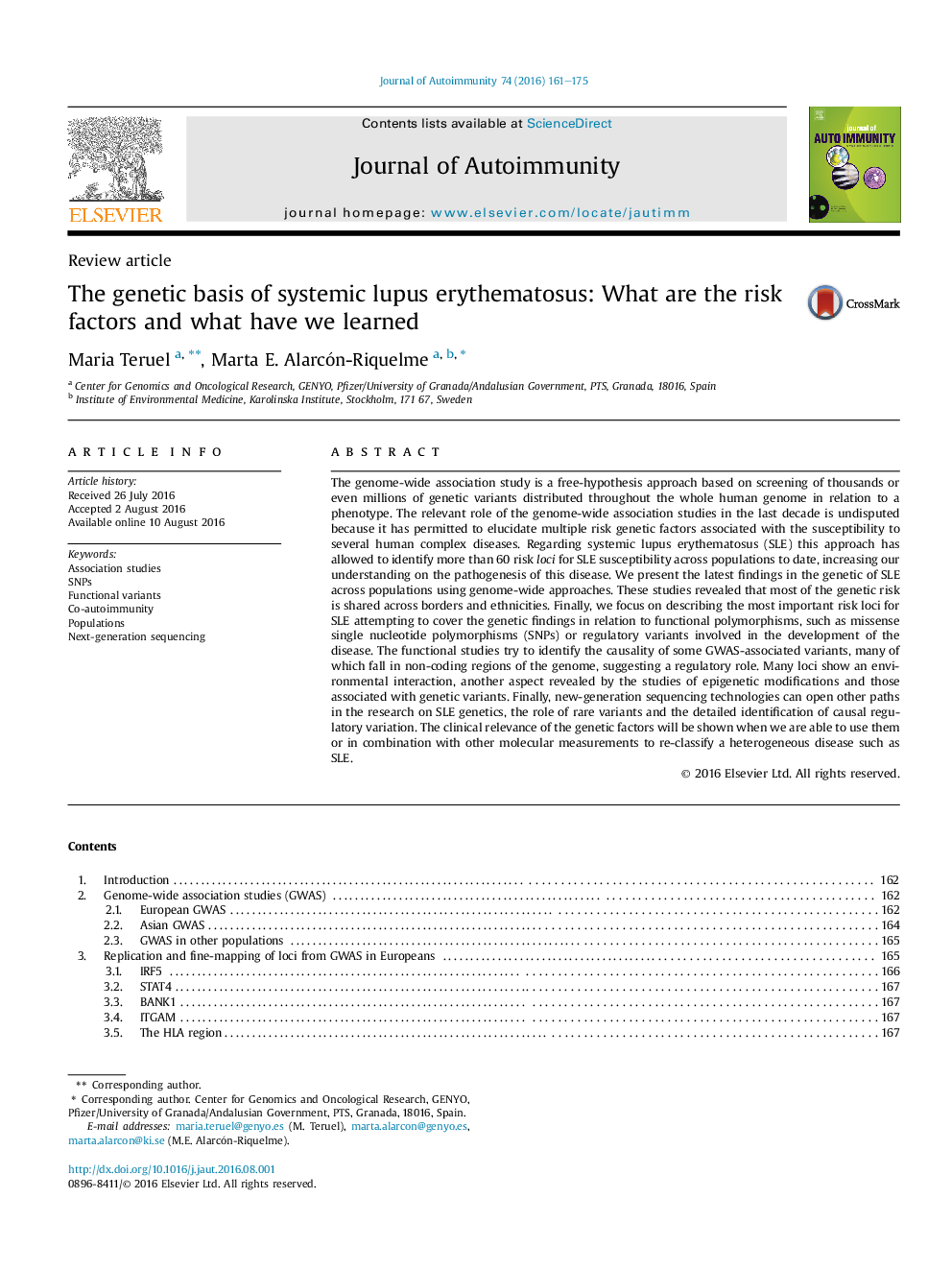| Article ID | Journal | Published Year | Pages | File Type |
|---|---|---|---|---|
| 5667904 | Journal of Autoimmunity | 2016 | 15 Pages |
â¢GWAS studies in SLE have led to over 60 confirmed genetic risk loci.â¢Next Generation Sequencing (NGS) leads to new discoveries at risk loci.â¢Most genetic risk loci are regulatory, including the HLA as found by NGS studies.â¢Epigenetics provides information on genetic interactions with environment.â¢Genetic risk, combined with other molecular features may be useful in the clinic.
The genome-wide association study is a free-hypothesis approach based on screening of thousands or even millions of genetic variants distributed throughout the whole human genome in relation to a phenotype. The relevant role of the genome-wide association studies in the last decade is undisputed because it has permitted to elucidate multiple risk genetic factors associated with the susceptibility to several human complex diseases. Regarding systemic lupus erythematosus (SLE) this approach has allowed to identify more than 60 risk loci for SLE susceptibility across populations to date, increasing our understanding on the pathogenesis of this disease. We present the latest findings in the genetic of SLE across populations using genome-wide approaches. These studies revealed that most of the genetic risk is shared across borders and ethnicities. Finally, we focus on describing the most important risk loci for SLE attempting to cover the genetic findings in relation to functional polymorphisms, such as missense single nucleotide polymorphisms (SNPs) or regulatory variants involved in the development of the disease. The functional studies try to identify the causality of some GWAS-associated variants, many of which fall in non-coding regions of the genome, suggesting a regulatory role. Many loci show an environmental interaction, another aspect revealed by the studies of epigenetic modifications and those associated with genetic variants. Finally, new-generation sequencing technologies can open other paths in the research on SLE genetics, the role of rare variants and the detailed identification of causal regulatory variation. The clinical relevance of the genetic factors will be shown when we are able to use them or in combination with other molecular measurements to re-classify a heterogeneous disease such as SLE.
